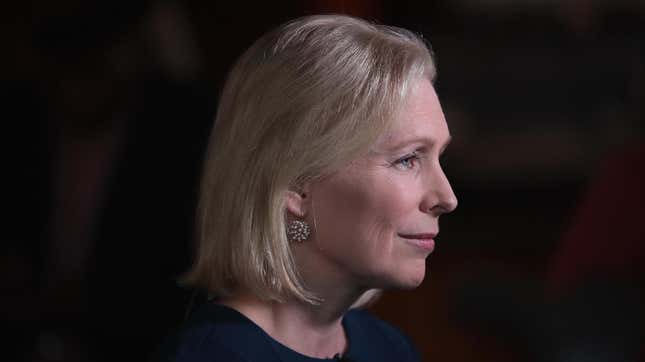

On Tuesday, Georgia Governor Brian Kemp signed a bill into law that effectively criminalizes abortion, banning the procedure as soon as a heartbeat is detected—which can happen as early as six weeks and often before a person may even realize they are pregnant. While the so-called “heartbeat bill” is unconstitutional on its face and sure to be met with a legal challenge, Republican governors in Mississippi, Ohio and Kentucky recently signed similar laws. The fate of these laws now rest with federal judges, a group that is becoming increasingly conservative under Trump.
On the same day Kemp signed the bill, New York Senator Kirsten Gillibrand issued an unusual—but important—pledge, promising that if elected president, she would only nominate judges “who will uphold Roe v. Wade and protect reproductive rights.”
-

-

-

-

-

-

-

-

-

-

-

-

-

-

-

-

-

-

-

-

-

-

-

-

-

-

-

-

-

-

-

-

-

-

-

-

-

-

-

-








































